The outlook for International Geneva in 2025
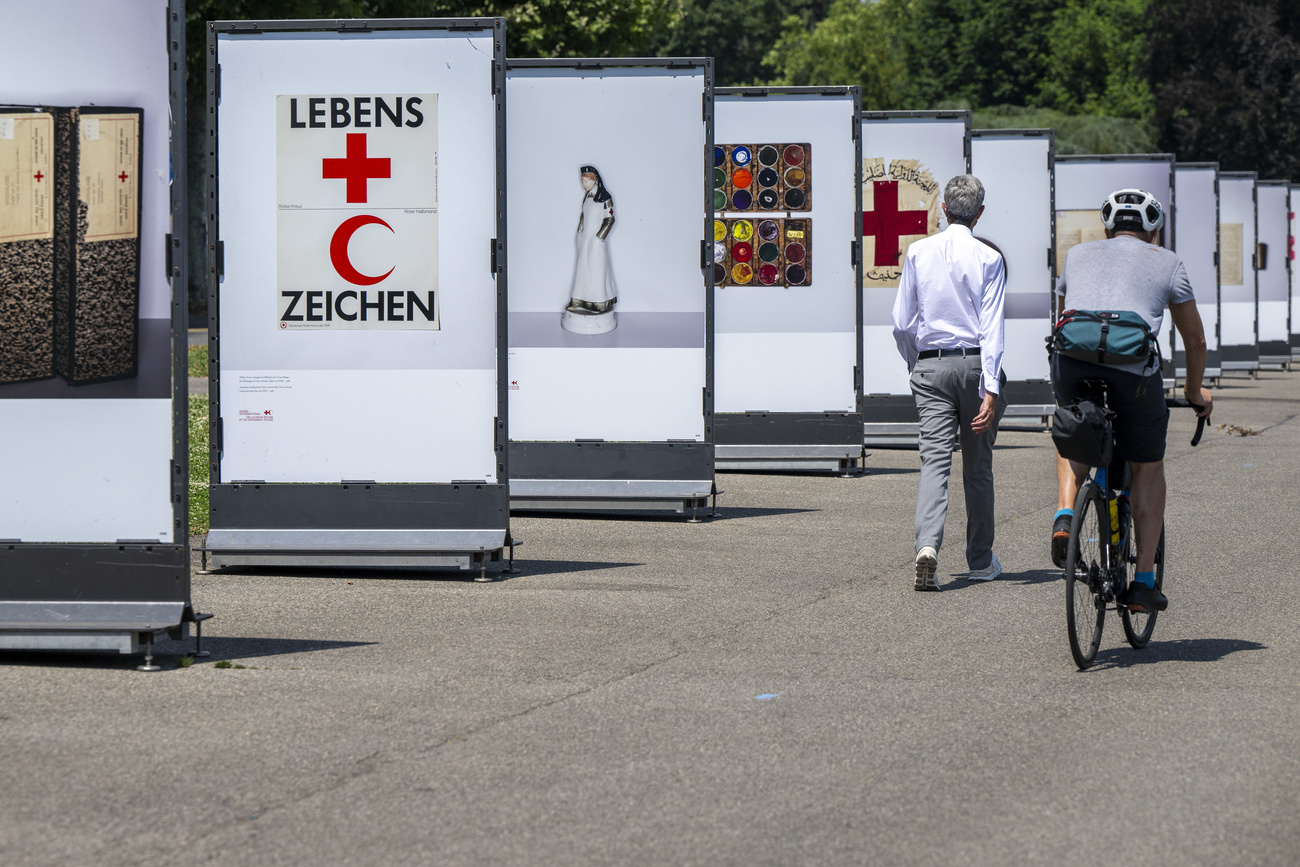
Will Donald Trump cut off the flow of money to International Geneva, which depends largely on US funding? In spite of the uncertainty, organisations in the Swiss city will be trying to reestablish the rules of war and come to the aid of victims in the world’s conflicts throughout the coming year.
As the European seat of the United Nations and birthplace of humanitarian aid, Geneva responds to wars and upheavals around the world – be they climate-related, geopolitical or economic. This year has not been easy for those who work in the international city, and 2025 is not likely to be any easier.
President-elect Donald Trump returns to the White House on January 20. The consequences of this are still hard to predict for the key players in International Geneva, if only because the man himself is so unpredictable. But it’s more than likely that he will resume his offensive against the multilateral system. During his first term in office he withdrew the US from international memberships and treaties – from the Paris agreement to the UN Human Rights Council.
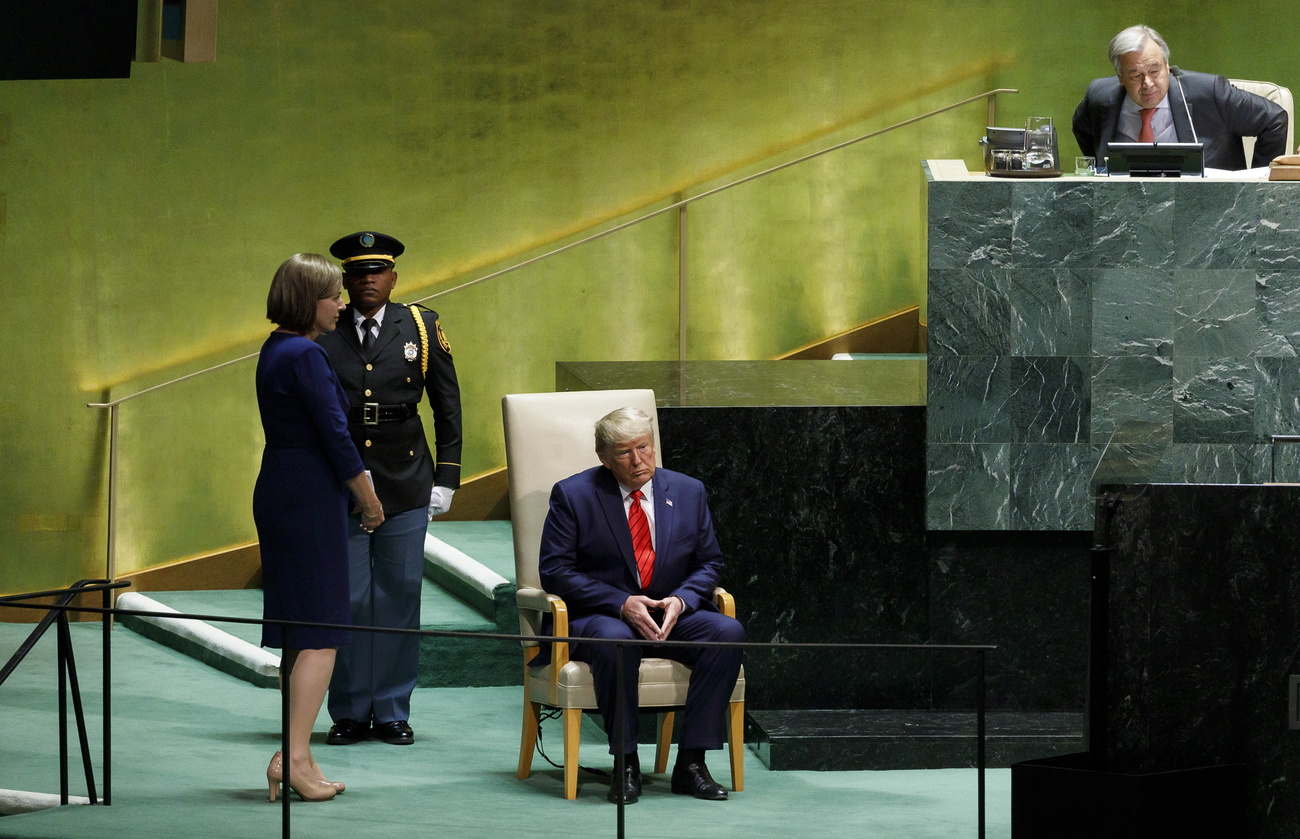
More
US election: is America drifting away from International Geneva?
Trump’s economic protectionism is still vividly remembered by the World Trade Organization (WTO). His administration blocked the system for resolving trade disputes between nations and imposed import duties on China that flouted WTO rules. The billionaire politician has already been saying he will slap import duties on goods from Canada and Mexico as well as China.
Current fears focus on the financial contribution of the US to organisations in International Geneva. Washington is by far the biggest donor to the United Nations as a whole (it provides 28% of the total contributions) and to some of the UN’s Geneva-based agencies in particular. One example is UNHCR, the UN Refugee Agency, 40.7% of whose budget is covered by the US.
Trump has appointed Elise Stefanik ambassador to the United Nations in New York. She is a congresswoman without experience of diplomacy, who has said that US funding of the UN needs “a complete review” because of what she considers the organisation’s anti-Israel bias.
It is impossible for the moment to predict what budget cuts might be coming. But one thing is sure: they would have an enormous impact on the UN, which recently went through a liquidity crisis.
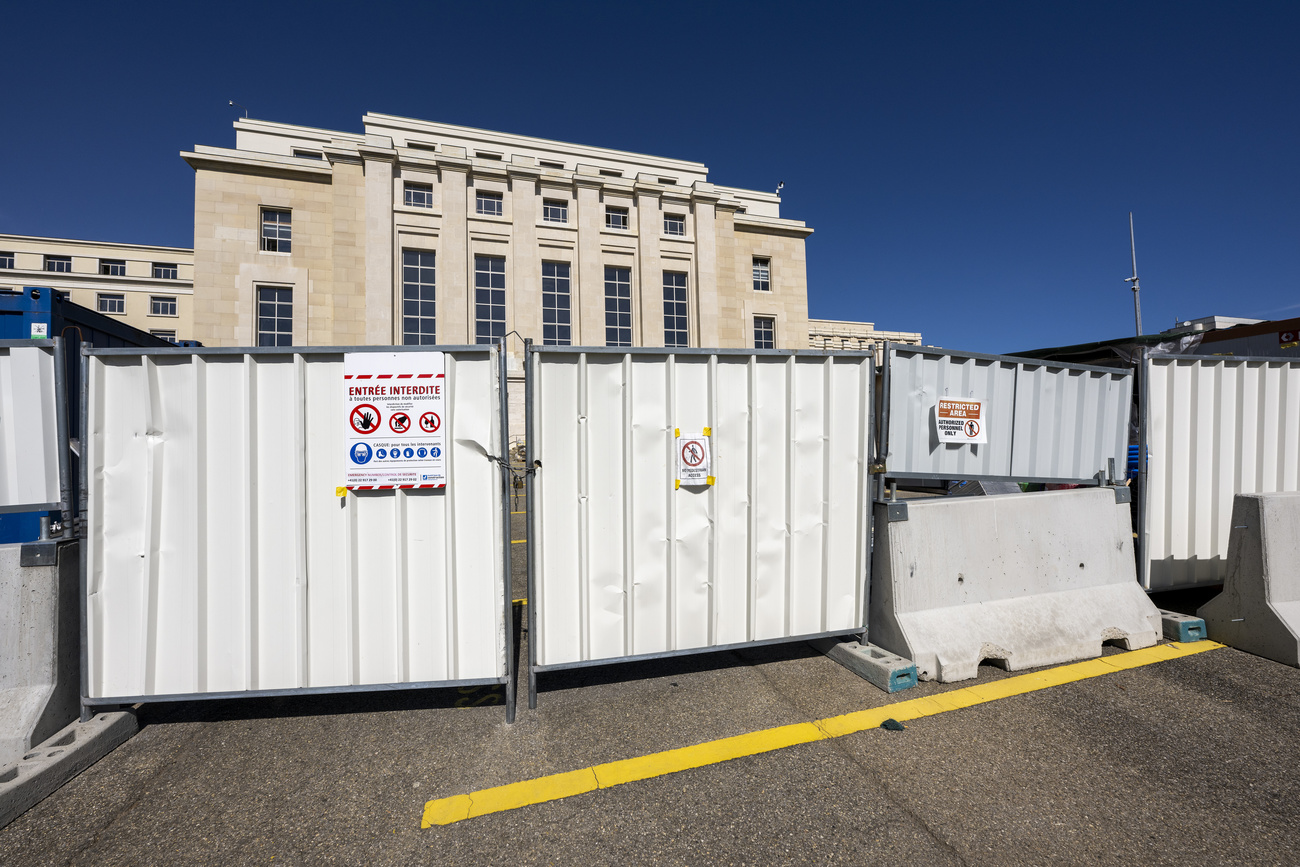
More
UN activities in Geneva hampered by financial constraints
Humanitarian law to be reaffirmed
In 2024 the Geneva Conventions turned 75. It should have been a year of celebration and reaffirmation of this cornerstone of international humanitarian law, protecting populations and civilian infrastructure in wartime. But it was rather an occasion for noting how bad things have got.
The rules of war continue to be flouted – in Ukraine, in the Middle East, in Sudan and in numerous other conflicts. One indication of this is the record number of victims among humanitarian workers in 2024. So far, 280 workers in the sector have been killed in 19 countries. Most of them were in Gaza.
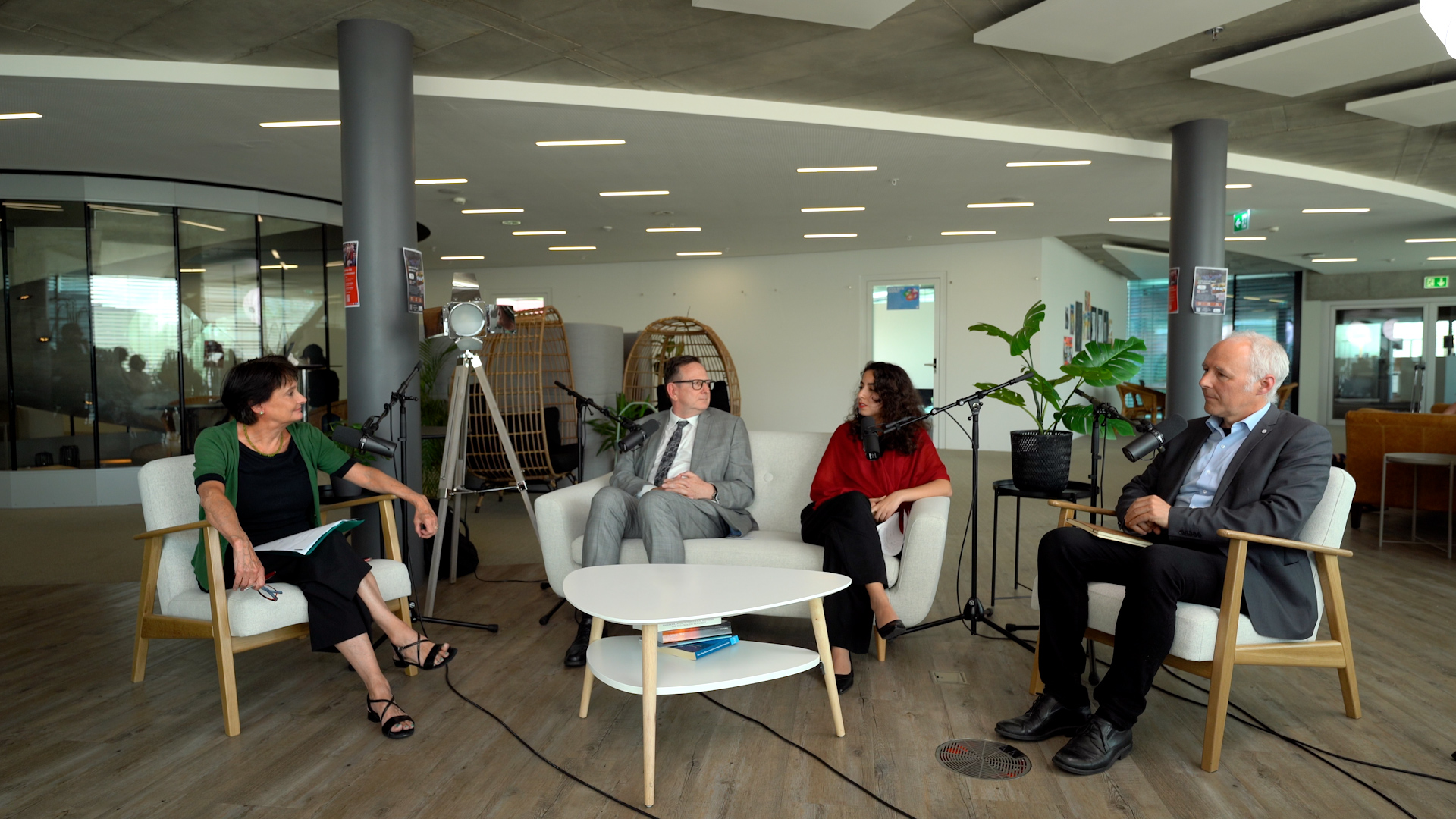
More
Geneva Conventions turn 75: are they still effective?
In view of this, the International Committee of the Red Cross (ICRC) and six states – South Africa, Brazil, China, France, Jordan and Kazakhstan – have launched a global initiative to make international humanitarian law a political priority. The initiative is intended to produce recommendations for ensuring greater respect for international law. There will be a high-level meeting on this in 2026.
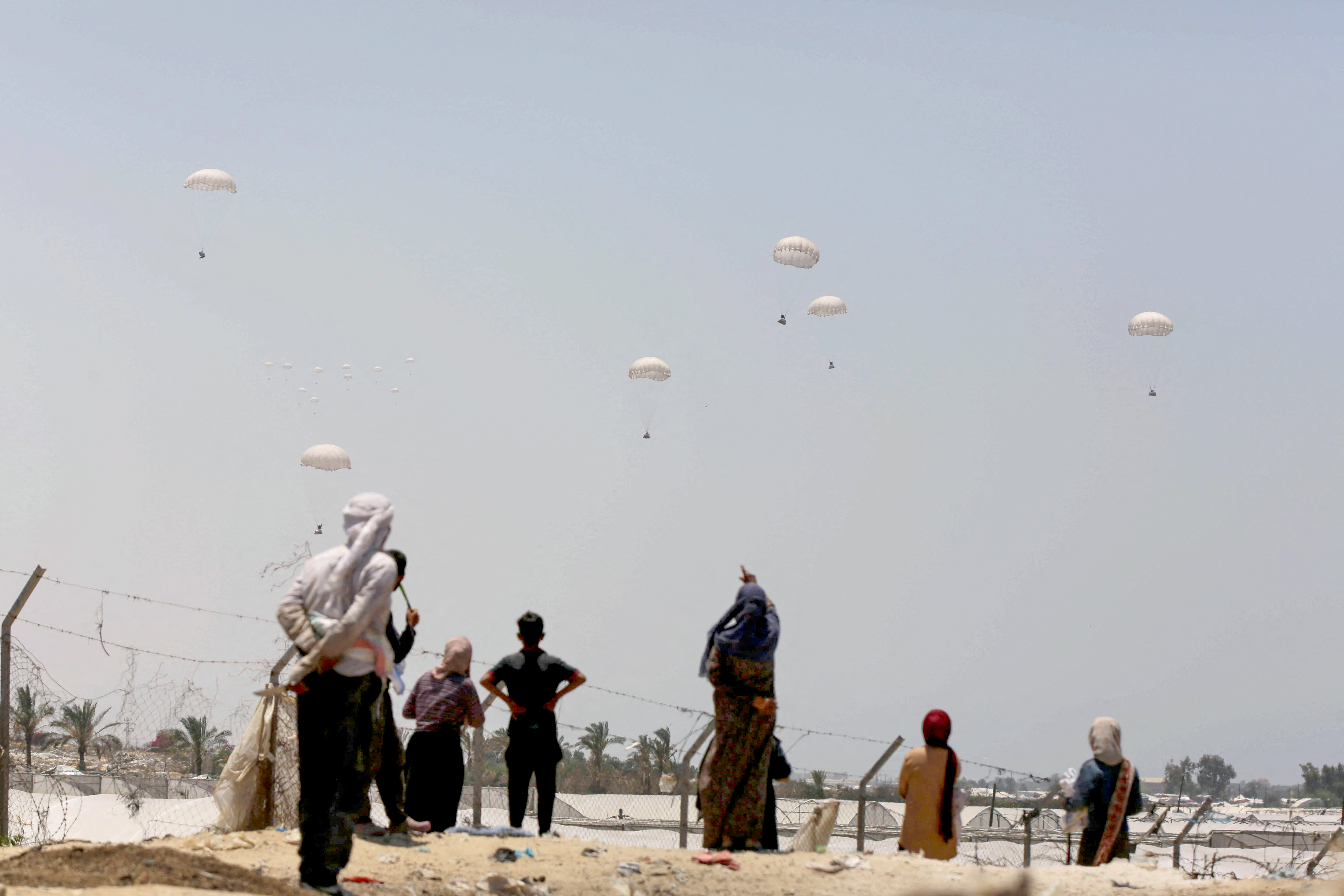
More
Humanitarian law: bleak headlines, but not all bad news
At the request of the UN General Assembly, Switzerland, which is the depositary state of the Geneva Conventions, will organise a conference of the signatory states in March 2025. This conference will focus on ensuring respect for the fourth Geneva convention. This is the convention that mandates protection for civilians in wartime. Against the backdrop of the Middle East conflict, the conference will be an occasion to reaffirm international humanitarian law and the resulting obligations on states.
Humanitarian aid under pressure
As it does every year, the UN Office for the Coordination of Humanitarian Affairs (OCHA) recently presented its estimate of humanitarian needs for the coming year. It calculates that 305 million people around the world will need help. It hopes to reach 190 million of them in 33 countries, with a total budget of $47 billion (CHF42 billion).
Given that some countries, such as Switzerland, are cutting their budgets for international aid, securing that amount is going to be harder than ever. The humanitarian agencies operating out of Geneva warn that a hole in the budget is going to affect people worldwide who will not be able to get vital help. At the time the estimates were issued, only 43% of the $50 billion requested for 2024 had actually been paid in.
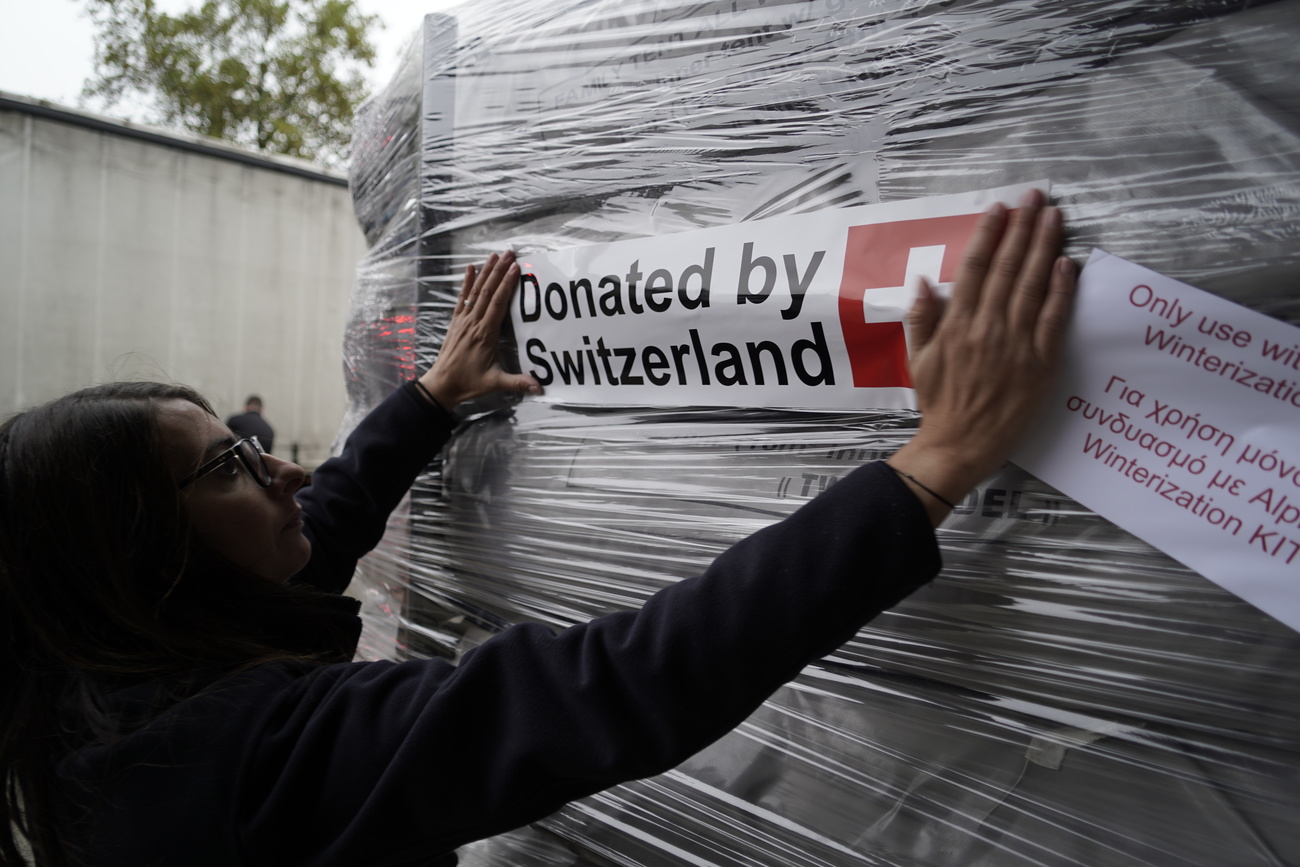
More
Proposed Swiss cuts to international aid mean less for the needy
2025 will be a crucial year for humanitarian aid to Gaza. The Israeli parliament has adopted legislation banning the UN agency for Palestinian refugees UNRWA from its territory and cutting contacts between it and Israeli officials. UNRWA says this legislation, which is due to take effect in three months, would make its work in the West Bank and Gaza impossible. In those places it is the major player regarding the distribution of humanitarian aid.
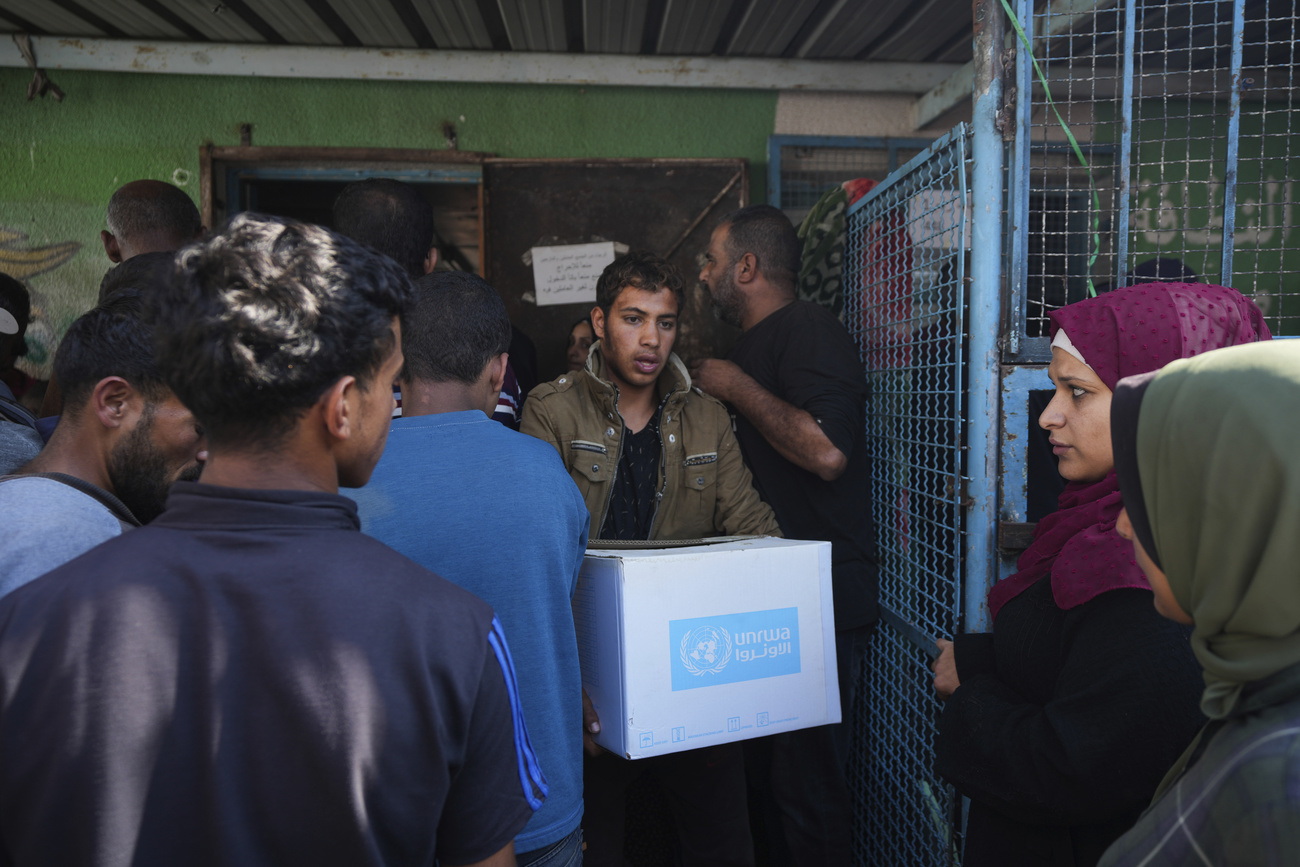
More
What does the Israeli parliament’s ban on UNRWA mean?
Israel accuses the organisation of having been infiltrated by the Palestinian militant group Hamas. Israel says a number of UNRWA staff participated in Hamas’s terrorist attack on Israel on October 7, 2023. These allegations have not been substantiated by either of the investigations held – one from outside and one internal to the UN. Given that Israel now plans to privatise distribution of humanitarian aid in Gaza, ravaged by a year of war, the future of UNRWA is very much in the balance.
A new challenge for Switzerland
After two years as a non-permanent member of the UN Security Council, Switzerland is now preparing to leave that role at the highest political level of the UN. It is now to be a member of the UN Human Rights Council, which is responsible for ensuring respect for basic rights throughout the world.

More
What Switzerland achieved at the UN Security Council
Switzerland has been elected as a member of the council for a three-year term. For the first time in its history, Switzerland is to chair the council based in Geneva for 2025. When it takes over this function, Switzerland will be responsible for organising the council’s meetings. There are at least three sessions a year. It will also get to nominate candidates for special rapporteurs and appoint experts to head inquiries launched by the council.
Started in 2006, the Human Rights Council has grown in importance these past few years. None of its 47 members has a veto, which means it can act when the Security Council is stalemated, for example on investigating possible war crimes in Ukraine and Syria. There have, on the other hand, been more and more heated exchanges at its meetings, which complicates the council’s work on the issues concerned.
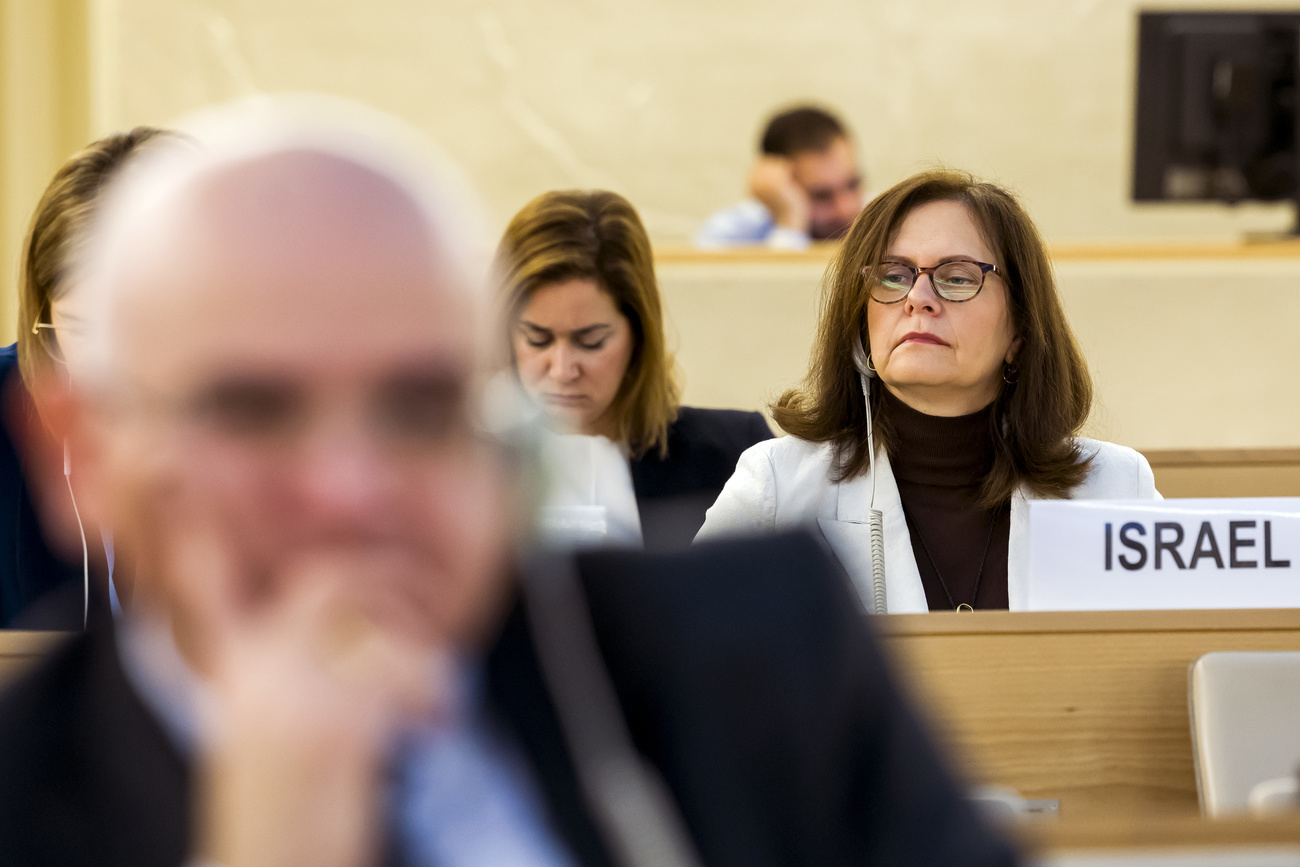
More
Is the Human Rights Council becoming a mini-Security Council?
Pandemics treaty
The international treaty on pandemics was supposed to be finalised in 2024, but it will now be completed in 2025. Member countries of the World Health Organization (WHO) decided in 2021 to negociate a treaty enabling the organisation and its 194 members to be better prepared to combat the next pandemic.
At the most recent meeting of the World Health Assembly, the decision-making body of the WHO, in May 2024 in Geneva, negotiators were given another year to work out an agreement. The treaty should be adopted in May at the next meeting of the body.
The member states have not been able to come to an agreement on several issues. Intellectual property, the sharing of data on pathogens, and fair access to vaccines are still matters of dispute. With states sticking to their positions, the risk is that negotiations will result in no more than a watered-down agreement, far from the ambitious goals set for it at the outset.
Edited by Samuel Jaberg/livm. Adapted from French by Terence MacNamee/ts

More
Newsletters

In compliance with the JTI standards
More: SWI swissinfo.ch certified by the Journalism Trust Initiative










You can find an overview of ongoing debates with our journalists here . Please join us!
If you want to start a conversation about a topic raised in this article or want to report factual errors, email us at english@swissinfo.ch.